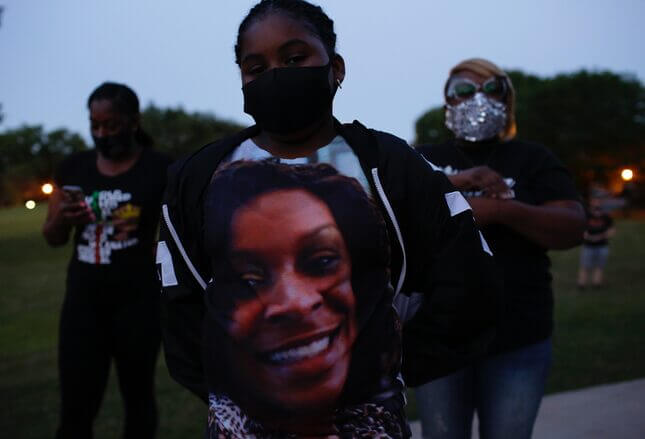Remembering Sandra Bland, 7 Years After Her Death
The 28-year-old was pulled over for a traffic violation and was found hanging in her cell, three days later
JusticePolitics

It’s hard to believe that it’s been seven years since the tragic death of Sandra Bland on July 13, 2015. The Chicago-bred, 28-year-old Black woman was gearing up for a new job at Prairie View A&M University in Waller County, Texas, her alma mater, that fateful morning she was pulled over for a routine traffic stop by state trooper Brian Encina.
Months prior to her death, Bland had been consistently posting content on social media related to the crisis of police brutality and the growing number of Black victims who were dying from systemic violence. “In the news that we’ve seen as of late, you could stand there, surrender to the cops, and still be killed,” she wrote in one post, almost as if to eerily predict her own harrowing encounter with a police officer.
On July 10, Bland’s traffic stop quickly escalated into a threatening situation when State Trooper Brian Encina asked Bland if she was “irritated,” and she confirmed that she was. Encina ordered Bland to put out her cigarette, and she pushed back, “Why do I have to put out a cigarette when I’m in my own car?”
Encina then promptly ordered Bland to “get out of the car,” telling her she was under arrest, which she rebuffed, questioning why she needed to leave her vehicle, to which the officer responded, “I’m giving you a lawful order.”
-

-

-

-

-

-

-

-

-

-

-

-

-

-

-

-

-

-

-

-

-

-

-

-

-

-

-

-

-

-

-

-

-

-

-

-

-

-

-

-








































